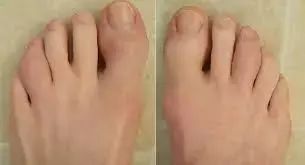- Home
- Medical news & Guidelines
- Anesthesiology
- Cardiology and CTVS
- Critical Care
- Dentistry
- Dermatology
- Diabetes and Endocrinology
- ENT
- Gastroenterology
- Medicine
- Nephrology
- Neurology
- Obstretics-Gynaecology
- Oncology
- Ophthalmology
- Orthopaedics
- Pediatrics-Neonatology
- Psychiatry
- Pulmonology
- Radiology
- Surgery
- Urology
- Laboratory Medicine
- Diet
- Nursing
- Paramedical
- Physiotherapy
- Health news
- Fact Check
- Bone Health Fact Check
- Brain Health Fact Check
- Cancer Related Fact Check
- Child Care Fact Check
- Dental and oral health fact check
- Diabetes and metabolic health fact check
- Diet and Nutrition Fact Check
- Eye and ENT Care Fact Check
- Fitness fact check
- Gut health fact check
- Heart health fact check
- Kidney health fact check
- Medical education fact check
- Men's health fact check
- Respiratory fact check
- Skin and hair care fact check
- Vaccine and Immunization fact check
- Women's health fact check
- AYUSH
- State News
- Andaman and Nicobar Islands
- Andhra Pradesh
- Arunachal Pradesh
- Assam
- Bihar
- Chandigarh
- Chattisgarh
- Dadra and Nagar Haveli
- Daman and Diu
- Delhi
- Goa
- Gujarat
- Haryana
- Himachal Pradesh
- Jammu & Kashmir
- Jharkhand
- Karnataka
- Kerala
- Ladakh
- Lakshadweep
- Madhya Pradesh
- Maharashtra
- Manipur
- Meghalaya
- Mizoram
- Nagaland
- Odisha
- Puducherry
- Punjab
- Rajasthan
- Sikkim
- Tamil Nadu
- Telangana
- Tripura
- Uttar Pradesh
- Uttrakhand
- West Bengal
- Medical Education
- Industry
Daily upadactinibib may substantially improve enthesitis among psoriatic arthritis patients

Daily upadactinibib may substantially improve enthesitis among psoriatic arthritis patients suggests a new study published in the Rheumatology.
A study was done to characterize the effect of upadacitinib 15 mg once daily (UPA15) on enthesitis in patients with psoriatic arthritis from the SELECT-PsA Phase 3 trials. Patients with an inadequate response/intolerance to ≥ 1 non-biologic DMARD (SELECT-PsA 1) or ≥ 1 biologic DMARD (SELECT-PsA 2) received UPA15, adalimumab 40 mg every other week or placebo (weeks 0-24) switched to UPA15 (week 24 onward). The Leeds Enthesitis Index (LEI) and Spondyloarthritis Research Consortium of Canada (SPARCC) index were used to assess improvement in enthesitis, enthesitis resolution, maintenance of enthesitis resolution, and protection from enthesitis development through week 56. Results: Data from 639 patients receiving UPA15 and 635 patients receiving placebo (including 317 patients who switched from placebo to UPA15) were analysed. UPA15 led to higher rates of enthesitis resolution vs placebo at week 24 (LEI: 59.8% vs 38.0%; SPARCC index: 50.6% vs 31.5%, respectively) and greater improvements in the LEI (-1.7 vs -1.0) and SPARCC index (-3.4 vs -1.9); improvements were maintained through week 56. Improvements were observed after 12 weeks of UPA15 treatment. Over 90% of patients without enthesitis (LEI = 0) at baseline receiving UPA15 were enthesitis-free at week 56, and UPA15 prevented recurrence of enthesitis at week 56 in > 80% of patients with enthesitis at baseline who achieved resolution (LEI = 0) at week 24. UPA15 is associated with a comprehensive improvement in enthesitis, with improvements observed after 12 weeks of treatment. Additionally, treatment with UPA15 was associated with maintaining an enthesitis-free state after resolution and protection against new-onset enthesitis.
Reference:
Cantini F, Marchesoni A, Novelli L, Gualberti G, Marando F, McDearmon Blondell E, Gao T, McGonagle D, Salvarani C. Effects of upadacitinib on enthesitis in patients with psoriatic arthritis: a post hoc analysis of SELECT-PsA 1 and 2. Rheumatology (Oxford). 2024 Feb 8:keae057. doi: 10.1093/rheumatology/keae057. Epub ahead of print. PMID: 38331400.
Dr. Shravani Dali has completed her BDS from Pravara institute of medical sciences, loni. Following which she extensively worked in the healthcare sector for 2+ years. She has been actively involved in writing blogs in field of health and wellness. Currently she is pursuing her Masters of public health-health administration from Tata institute of social sciences. She can be contacted at editorial@medicaldialogues.in.
Dr Kamal Kant Kohli-MBBS, DTCD- a chest specialist with more than 30 years of practice and a flair for writing clinical articles, Dr Kamal Kant Kohli joined Medical Dialogues as a Chief Editor of Medical News. Besides writing articles, as an editor, he proofreads and verifies all the medical content published on Medical Dialogues including those coming from journals, studies,medical conferences,guidelines etc. Email: drkohli@medicaldialogues.in. Contact no. 011-43720751


